Working Memory and Processing Challenges
How Can the Tutors Support Children with Working Memory and Processing Challenges?
When educational psychologists mention ‘working memory’ or ‘processing’, it can sound as if they’re talking about a computer rather than a person. But in some ways, the human nervous system is a kind of computer and when health professionals use these terms, they are referring to the brain’s ability to perform certain functions.
Working memory and processing are very often affected when someone has a condition such as autism, ADHD, dyspraxia or dyslexia. They may also be impaired if someone has suffered a head injury.


"My beautiful adopted son has Learning Disabilities, including dyslexia, dyscalculia, and poor working memory. He also has ADHD and challenging behaviours including poor self-regulation. I reached out to SENsational Tutors and within a few weeks my son has not only got a tutor but a friend in John. For the first time since my son has been in school, and for two weeks running, he has got full marks in his Spelling Test. I am hugely grateful."
Tarn, M’s mother, London
Working memory is the ability to hold a piece of information in the forefront of your mind while you use it. Whereas your short-term memory also stores information for a brief period – what you ate for dinner last night, for instance – your working memory is slightly different in that it allows you to work with that information in the moment.
A simple example of this might be when you’re thinking about a maths problem. You’ve just calculated that 12 + 13 = 25 and the next step is to multiply the answer by 7. To do this, you need to keep the number 25 in your mind while you remember your seven times table, apply that information and complete the task.
Unsurprisingly, children with impaired working memory can find certain tasks in the classroom hugely challenging, despite being intelligent and capable. Maths is one obvious area that can be very difficult but following instructions or completing any kind of step-by-step process can also be almost impossible for some kids.
As working memory is a feature of ‘executive function’ – those skills which allow a person to organise their life and workload, focus and regulate their emotions – a student with issues in this area may also find it difficult to concentrate and take in the necessary information from the teacher in the first place. In a busy classroom, it’s easy for a child to be distracted by everything around them from a classmate sniffing to the overhead lighting.
Problems with working memory are not always easily identified in everyday life and parents who are concerned should seek a formal assessment from an educational psychologist. There are techniques to help students who struggle with this – writing down instructions, is one easy solution – but specialist tutors with experience of pupils with attention problems will have plenty of techniques for helping kids to catch up with schoolwork.
When educationalists and health professionals talk about ‘processing’, they are referring to the way in which a person’s brain makes sense of the information being fed to it. Some children with special needs have problems in this area though some experts argue that these can also be standalone difficulties. The most common types of processing disorder are auditory, visual and sensory.
A child with auditory processing disorder (APD) will find it difficult to make sense of spoken language and to identify differences in the sounds in words. This can be especially tricky in noisy environments but has nothing to do with impaired hearing. The problem is in the way the brain interprets what they hear.
Likewise, visual processing disorder (VPD) means that a person finds it difficult to interpret visual information. This could manifest itself as problems with reading or spotting the difference between shapes, and might also mean that someone has poor hand-eye coordination.
VPD is a complex area and is unlikely to be detected during a routine eye test. There are many variations of this disorder – children may have problems with spatial awareness, for example, or get some of their letters back-to-front.
Sensory processing disorder (SPD) is where someone becomes overwhelmed by information ‘flooding’ into their brain via all the senses. A child may be under or over-sensitive to certain stimuli, becoming distressed by certain noises, for example, or needing to chew things.
Many symptoms of problems with working memory or processing are shared by other SEN conditions. It’s important, therefore, for parents to seek help from a paediatrician, psychologist or occupational therapist in order to build a complete picture of their child’s needs and secure the appropriate help.
Useful contacts
The British Psychological Society provides information on all kinds of psychological provision and has a members list.
Visit them at www.bps.org.uk
The Royal College of Occupational Therapists has a directory of OTs. Contact them at www.rcot.co.uk
"William really struggles with his memory, to stay focused and work independently. We have already seen a difference in all three of these areas. Kirsten is so engaging and fun, she has really boosted his self-esteem and William loves his sessions with her! SENsational Tutors have been really simple and helpful to deal with too. I can’t wait to see where he is in a year’s time!"
Nathalie, William’s mother, London
Tutor Spotlight

Lucy shares her experience working with children with working memory/processing challenges:
“With numerous years of dedicated service in a special school setting, I have amassed extensive experience in effectively supporting children with working memory and processing differences, within the spectrum of co-occurring needs. Additionally, I am currently in the process of enhancing my expertise by pursuing a Level 5 course in supporting young learners with dyslexia and specific learning differences, equipping me with up to the most up to date insights and strategies.”
Lucy’s approach for working with children with working memory/processing challenges:
“I aim to implement strategies that accommodate the child’s specific needs. First, break down complex tasks into smaller, more manageable steps, providing clear instructions and visual aids to support their understanding. Second, use mnemonic devices, repetition and multi-sensory activities to reinforce information and promote retention. Finally, create a structured and organised environment to minimise distractions and help children stay focused, which can enhance their working memory and processing abilities.”
Lucy’s top tips for parents/carers with children with memory/processing challenges:
- Create a Routine: Predictability can help children with working memory and processing needs plan and manage their time more effectively.
- Visual Aids: Use visual aids like charts, calendars, and checklists to make tasks and schedules more tangible.
- Chunk Information: Break down tasks and instructions into smaller, manageable chunks.
- Repetition and Practice: Encourage regular practice and repetition to reinforce learning.
- Multisensory Learning: Engage multiple senses when teaching new concepts. Hands-on activities and interactive learning experiences can enhance memory retention and processing.
- Encourage Self-Advocacy: Teach your child to recognise their own strengths and challenges. Encourage them to ask for help when needed and to develop self-advocacy skills.
- Minimise Distractions: Create a quiet, organised, and distraction-free workspace for homework and study. Reducing external stimuli can help children concentrate and process information more effectively.
- Offer Patience and Support: Be patient and empathetic when your child struggles with tasks.
- Utilise Technology: Explore educational apps and tools designed to assist children with working memory and processing needs. These resources can provide additional support and practice.
- Collaborate with Teachers: Maintain open communication with your child’s teachers to ensure they are aware of their needs and can provide tailored support in the classroom. Working together as a team can lead to better outcomes for your child’s learning.




